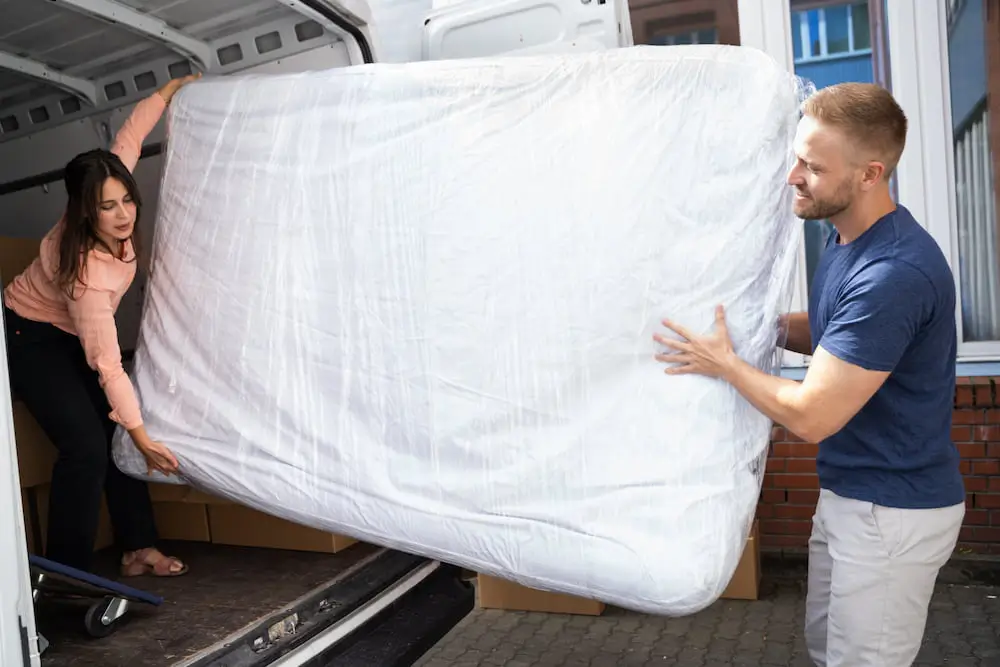Be it for love, out of necessity, or somewhere in between, the need to combine households can happen to homeowners and renters at almost any age or stage of life.
We’ve been down this road before, and we know it can stress both parties, especially if the relationship is entering a new phase.
So, we’ve compiled a few tips to help make the process a little easier.
Combining Households for Love, Money or Both
If you’re planning to take your relationship to the “living together” or “marriage” phase, then it’s important to talk about combining things, and make plans. As you began to explore your relationship, you’ve probably overlooked a few of your partner’s idiosyncrasies, but once you’re sharing space on a full-time basis, something that seemed “cute and endearing” might become a potential point of conflict.
Another reason two or more people might choose to combine households is to save money. With rent skyrocketing across the country, paying for a two-bedroom apartment is almost always cheaper per person than renting a pair of one-bedroom apartments. In Feb. 2023, a two-bedroom apartment rented for $1,320, and a one-bedroom was $1,152 (Average monthly apartment rent in the United States from January 2017 to February 2023, by apartment size, Feb. 2023, Statista). Other costs, such as utilities, can also be split, reducing each person’s overall contribution, compared to two separate apartments.
Of course, boundaries are easier to establish with this type of relationship, but it’s definitely a good idea to know a little about what you can (and can’t) tolerate before signing a long-term lease with someone.

Here Are 11 Considerations for Combining Households
- Make Lists – When combining households, each party should make a list of everything they are bringing to the table (especially if it’s two tables). That accomplishes two tasks. First, it lets you know if you have duplicate items, and second, it helps you uncover holes that you might need to fill. Two coffee makers but no toaster might be an issue.
- Agree on Expenses – Another important list to create is that of expenses. Each person should remain responsible for their own debt, and other bills like rent, utilities and so on should be agreed upon well in advance.
- Be Willing to Give and Take – Just because you are bringing a particular item to the relationship doesn’t mean that it’s the best solution. A full-size espresso machine might have been acceptable in your last place, but what happens if your new place has only half the counter space?
- Ditch the Past – If you’re bringing anything into your relationship that you owned in college (like that dirty couch or the futon you got from that dude in the frat house), be ready to part with it or store it.
- Self-storage is Imperative – OK, this might sound a little self-serving, but renting a self-storage unit helps. Hear us out:
- Apartments don’t have a lot of storage to begin with. Especially if you’re more established in your life, you and your roommate could probably fill a one- to two-bedroom apartment each.
- Storage is still cheaper than renting two places. A medium-sized storage unit averages $140 (How Much Does It Cost to Rent a Storage Unit?, Feb. 2023, Move.org), which is still less than the difference between the average costs of a one- and two-bedroom apartment.
- You both might have items worth keeping. Just because you chose to use one set of dishes doesn’t mean you have to get rid of your grandmother’s bone china. If you plan on passing down items to the next generation, then storage is a must-have.
- Trendy items come and go. One day, you might be into cluttercore, the next might be all about minimalism. Self-storage helps you prepare for both.
- Relationships and friendships don’t always work. Sad, but true. Nothing worse than having to re-purchase the Pixies’ Doolittle CD, an air fryer, a toaster oven and a lava lamp if you already owned them once.
Think of self-storage as an extension of your home. You can visit your things pretty much anytime you want. It’s also a convenient place to store your possessions without crowding you out of your new digs.

How to Get Moved
Combining two households into one is never an easy task and moving is stressful enough. The goal is to try to minimize the number of trips you have to make on moving day.
- If you need to rent a van, book at least two weeks ahead of time. If you’re hiring movers, make a reservation two or more months in advance. Movers can often make multiple stops if you arrange it ahead of time. Just be aware that added stops are likely to include additional fees.
- It’s never too early to start decluttering. Consult your list and determine which items will be moving to your new abode, then which items will go into self-storage, and finally which items are destined to be sold, donated, or taken to the landfill.
- If you’re sharing a storage unit, make sure everything is clearly labeled. Keep the items you were on the fence about near the front of the storage unit, in case you need to go grab them at any point.
Then, it’s time to move in.
- Try to be strategic about packing. If your move involves a self-storage unit, decide if you’re going there first or last, then group those items together.
- Remember to keep valuables, cleaning materials, and urgent items separate so you know where they are and can easily access them. Prioritize unpacking kitchen equipment, towels and bedding—the rest can wait.
- Keep your moving day experience FUN. Play music, plan an unpacking party with friends, or celebrate a job well done at a favorite restaurant. Check out 6 Ways to Make the Process of Moving More Fun on MegansMoving.com for more ideas.
Pro tip: Read our blog about 9 Helpful Moving Tips to Make Moving-In Easy.

FAQs
Q: Are there legal issues around moving in together without getting married?
A: While cohabitation (the legal name for living together) itself doesn’t necessarily create legal issues, there may be some that arise if the couple decides to split up. FindLaw.com or LawInfo.com are two excellent resources for uncovering the legal ramifications of cohabitating.
Q: Will moving companies make multiple stops?
A: Most moving companies understand what happens when households are combining, so trips to multiple apartments or houses, and even self-storage facilities, are usually doable. Let them know well in advance and be prepared to pay an additional fee, however.
Q: How should cohabitating couples split bills?
A: It’s recommended that each person continue to pay their own debts, like credit cards, auto or student loans, etc. Try to come to an equitable agreement to pay the common bills, such as rent and utilities, well in advance and write it down. Many experts advise against co-signing on loans without a legal cohabitation agreement.
Conclusion
Planning ahead, creating lists, and decluttering are three of the biggest keys to combining households. The fourth, we would argue, is self-storage. Trying to put two lives worth of stuff together into one living space is a recipe for overcrowding, stress and disaster. So, give yourself the best odds for success – make it fun, don’t sweat the small stuff, and definitely rent a storage unit.
Final thought: Check out our blog, The Best Move-in Checklist for Couples, for even more insightful tips, plus a free PDF checklist!





